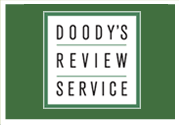At the recent Medical Library Association annual meeting, the main concern I heard from almost everyone was about his or her budget situation. I've been in collection development since 1980, and while we faced budget problems in the 80s and 90s, this current downturn is far deeper, and according to some economists, will last much longer. Some say we should expect no relief before 2012. That's a long time in the publishing and library world, and we should expect some changes. How might our environment change in the next few years?
Many libraries now purchase journal packages through consortia. While they have saved us some money, even price caps won't help much with a budget lower than last year's. The International Coalition of Library Consortia (ICOLC) released a statement in January on the global economic crisis and its impact on consortial licenses. The Coalition predicts significant, widespread budget cuts for libraries and consortia, and expects these cuts to be prolonged. The statement asks publishers to be flexible in their pricing, and to seek creative solutions that allow libraries to keep their licenses without a major loss of access. Both the Association of Academic Health Sciences Libraries and the Medical Library Association endorsed this statement. The Association of Research Libraries also released a statement this year, reinforcing the ICOLC statement. Both statements called for price reductions and encouraged publishers to be open to midterm negotiations of contracts. It will be interesting to see how publishers work with consortia as the 2010 renewals come up this fall. If they are willing to accept price reductions in the middle of contracts, then the big deals will stick around. If publishers refuse, it's easy to predict many consortia members invoking the "financial emergency" clause in their agreements, and canceling far more titles than the negligible numbers currently allowed. Massive emergency cancellations could cause big deals to fall apart.
Some publishers (mostly society publishers), seeing the budget problems libraries are facing, have announced journal price freezes for 2010. While these publishers are to be commended, this is also a basic survival tactic. Many large libraries have a large percentage of their acquisitions budget stuck in big deal, multiyear contracts. Since that percentage is difficult to reduce, this means budget reductions fall upon the small publishers. I for one have a hard time punishing a small publisher who has frozen his prices by canceling his journals. I will try to reward those publishers by keeping their journals - emphasis on "try." I have heard of only two for-profit STM publishers announcing a price freeze for 2010 - Thieme Publishing Group and Guilford Press. These are small publishers. What's it going to be, large for-profits? Massive cancellations when you ignore our situation by raising prices, or reduced profits with frozen prices?
If the downturn continues for over two years, expect to see the following:
- We'll have even fewer STM publishers as small, financially stressed for-profits are sold to the big publishers, with resulting price increases.
- Many societies who currently publish their own journals will hand them over to for-profit publishers, with resulting price increases.
- Fewer big deals are renewed, as libraries realize that even the capped annual increases are no longer sustainable.
While the traditional journal publishing world would appear to be following a cancellations-leading-to-higher-prices-leading-to-more-cancellations death spiral, open access (OA) could actually gain ground in this downturn:
- After a weak, voluntary OA policy for NIH-funded authors didn't work, a mandatory OA policy went into effect in 2008.
- The bipartisan Federal Research Public Access Act (S.1373), reintroduced this spring, would expand the NIH mandate to 11 U.S. government agencies.
- Worldwide, OA mandates from institutions, departments, and funding agencies are growing rapidly.
- The number of OA journals has almost doubled in the past three years.
If the economic downturn lasts more than two years, expect budget-impaired libraries to begin massive journal cancellations. Many researchers will decide to move to OA journals to assure their articles are available to a wide audience.
And where does all of this leave book publishing? Almost all of us have moved monograph money over to serials, meaning fewer books are purchased. Meanwhile, medical book publishers are now starting to get serious about electronic publishing. It took the journal publishing industry almost 10 years to settle on a few stable models for electronic publishing. Book publishers, relatively new to this environment, are still trying to find a model. Will it be subscription-based, one-time purchase, through an aggregator, purchased direct, purchased through a vendor, or something new? It will take a few years for e-book pricing and purchase models to settle down. But in those years, library money for books, both print and electronic, will likely continue to decrease. I expect a shakeout in STM book publishers before the end of the downturn.
Lots of changes will be coming to our world while the downturn plays out. We librarians will need all of our skills to ensure our users have access to the information they need -- budgeting, evaluation, bargaining, and political skills will be vital. My seatbelt is fastened, but could you pass the Dramamine?
Mark Funk is the Head of Resource Management - Collections at the Weill Cornell Medical Library in New York City. He is a member of the Library Board of Advisors for Doody Enterprises, Inc. He is a past-president of the Medical Library Association, and blogs at leavesamark.wordpress.com.
